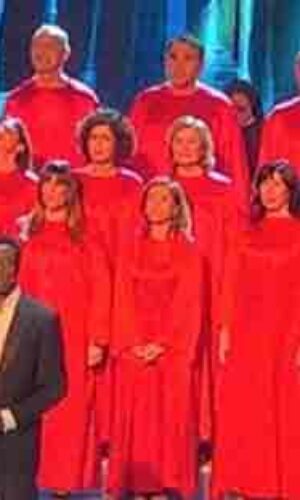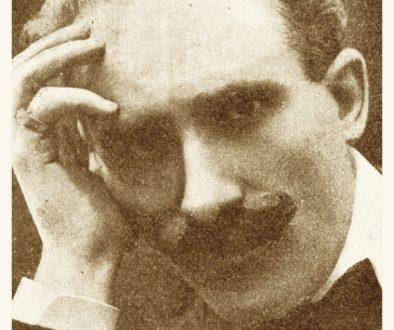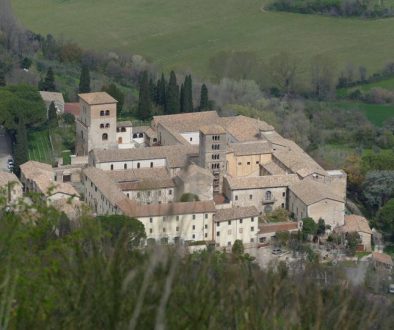Roma – Amazing Grace Gospel Choir-Biblioteca DEA SABINA
Biblioteca DEA SABINA
Roma – Amazing Grace Gospel Choir-
Biografia –Amazing Grace è il titolo di uno dei più antichi e popolari canti gospel della tradizione musicale americana, un inno bellissimo alla grazia concessa da Dio agli uomini liberi.

Da questa suggestione che racconta della radice spirituale della musica gospel, parte Amazing Grace Gospel Choir, una iniziativa culturale in collaborazione con l’American University of Rome, per la conoscenza, la promozione e la diffusione della tradizione del gospel a Roma e in Italia.
Amazing Grace vuole essere un punto di riferimento per lo studio della cultura, dello stile e del repertorio gospel e il primo passo per la costituzione a Roma di un coro Gospel professionale, permanente, aconfessionale e apolitico.
Il coro è formato da 40 elementi provenienti da diversi Paesi del Mondo, ed è affiancato da vari musicisti. Porta in scena un repertorio di Gospel moderno, non rinunciando a reinterpretare classici della tradizione Afro-Americana.
La direzione artistica e didattica di Amazing Grace Gospel Choir è a cura di Timothy Martin, tenore e performer afro-americano noto sulla scena nazionale ed internazionale, con una pluriennale esperienza nell’insegnamento del canto e da sempre attento alla diffusione e valorizzazione della tradizione gospel in Italia e all’estero. Attualmente è docente di storia della musica presso l’American University of Rome e docente di canto presso la Scuola di Musica Popolare di Testaccio a Roma.

Presidente
Martin Timothy
Codice socio
FCI1192/23
Sede
Roma
Tipologia
voci miste
Repertorio
Gospel
Sito / Email
timartino@yahoo.com
FEDERCORI
Federazione Cori Italiani Chorus Inside
APS Ente Terzo Settore–
Via Giuseppe Verdi n. 15 – 66100 Chieti
E-mail: info@federcori.it
“Amazing Grace” is a Christian hymn published in 1779, written in 1772 by English Anglican clergyman and poet John Newton (1725–1807). It is possibly the most sung and most recorded hymn in the world, and especially popular in the United States, where it is used for both religious and secular purposes.[1][2][3]
Newton wrote the words from personal experience; he grew up without any particular religious conviction, but his life’s path was formed by a variety of twists and coincidences that were often put into motion by others’ reactions to what they took as his recalcitrant insubordination. He was pressed into service with the Royal Navy, and after leaving the service, he became involved in the Atlantic slave trade. In 1748, a violent storm battered his vessel off the coast of County Donegal, Ireland, so severely that he called out to God for mercy. While this moment marked his spiritual conversion, he continued slave trading until 1754 or 1755, when he ended his seafaring altogether. Newton began studying Christian theology and later became an abolitionist.
Ordained in the Church of England in 1764, Newton became the curate of Olney, Buckinghamshire, where he began to write hymns with poet William Cowper. “Amazing Grace” was written to illustrate a sermon on New Year’s Day of 1773. It is unknown if there was any music accompanying the verses; it may have been chanted by the congregation. It debuted in print in 1779 in Newton’s and Cowper’s Olney Hymns, but settled into relative obscurity in England. In the United States, “Amazing Grace” became a popular song used by Baptist and Methodist preachers as part of their evangelizing, especially in the American South, during the Second Great Awakening of the early 19th century. It has been associated with more than 20 melodies. In 1835, American composer William Walker set it to the tune known as “New Britain” in a shape note format; this is the version most frequently sung today.
With the message that forgiveness and redemption are possible regardless of sins committed and that the soul can be delivered from despair through the mercy of God, “Amazing Grace” is one of the most recognisable songs in the English-speaking world. American historian Gilbert Chase writes that it is “without a doubt the most famous of all the folk hymns”[4] and Jonathan Aitken, a Newton biographer, estimates that the song is performed about 10 million times annually.[5]
It has had particular influence in folk music, and has become an emblematic black spiritual. Its universal message has been a significant factor in its crossover into secular music. “Amazing Grace” became newly popular during the 1960s revival of American folk music, and it has been recorded thousands of times during and since the 20th century.



